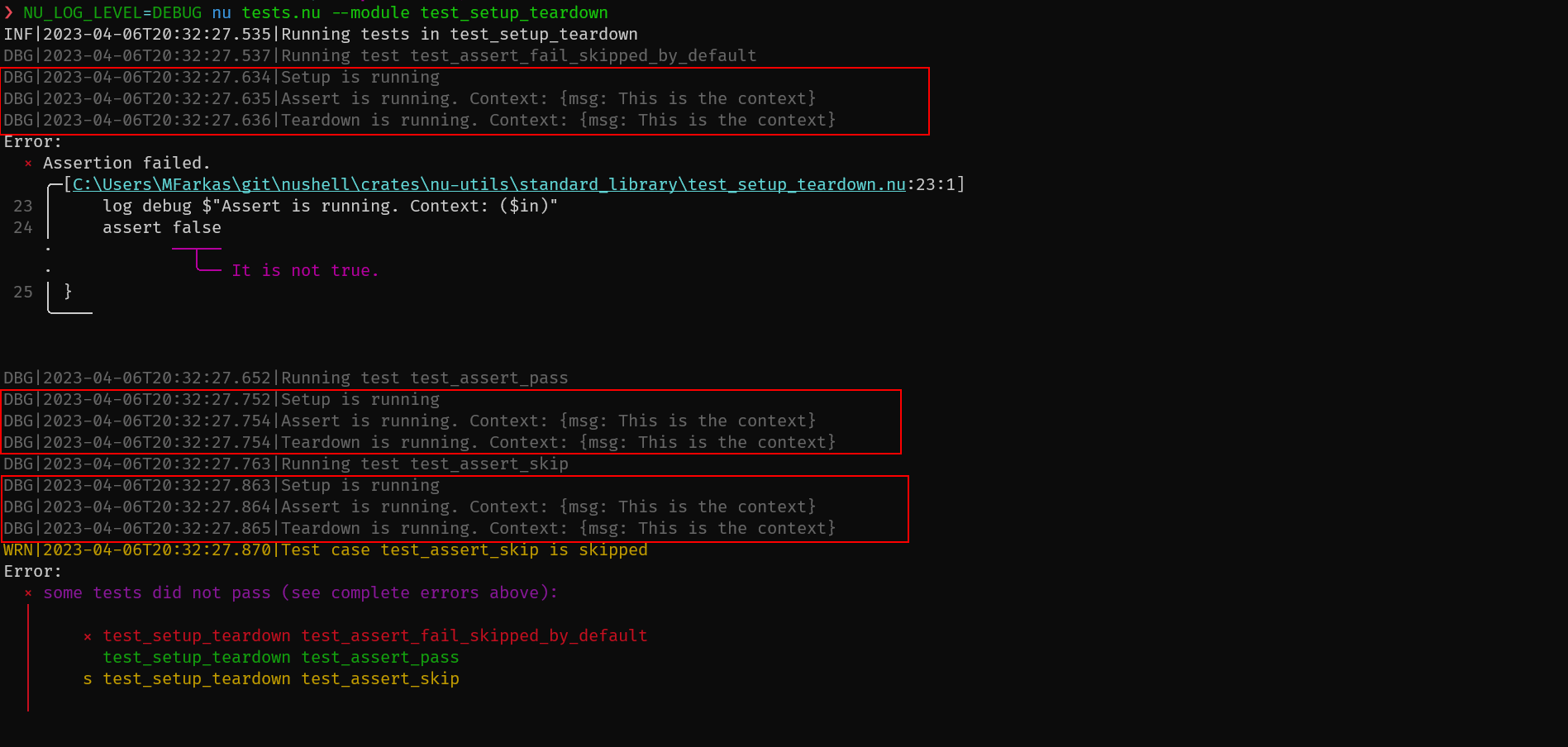# Description
Test runner now performs following actions in order to run tests:
* Module file is opened
* Public function with random name is added to the source code, this
function calls user-specified private function
* Modified module file is saved under random name in $nu.temp-path
* Modified module file is imported in subprocess, injected function is
called by the test runner
# User-Facing Changes
<!-- List of all changes that impact the user experience here. This
helps us keep track of breaking changes. -->
* Test functions no longer need to be exported
* test functions no longer need to reside in separate test_ files
* setup and teardown renamed to before-each and after-each respectively
* before-all and after-all functions added that run before all tests in
given module. This matches the behavior of test runners used by other
languages such as JUnit/TestNG or Mocha
# Tests + Formatting
# After Submitting
---------
Co-authored-by: Kamil <skelly37@protonmail.com>
Co-authored-by: amtoine <stevan.antoine@gmail.com>
related to the namespace bullet point in
- https://github.com/nushell/nushell/issues/8450
# Description
this was the last module of the standard library with a broken
namespace, this PR takes care of this.
- `run-tests` has been moved to `std/mod.nu`
- `std/testing.nu` has been moved to `std/assert.nu`
- the namespace has been fixed
- `assert` is now called `main` and used in all the other `std assert`
commands
- for `std assert length` and `std assert str contains`, in order not to
shadow the built-in `length` and `str contains` commands, i've used
`alias "core ..." = ...` to (1) define `foo` in `assert.nu` and (2)
still use the builtin `foo` with `core foo` (replace `foo` by `length`
or `str contains`)
- tests have been fixed accordingly
# User-Facing Changes
one can not use
```
use std "assert equal"
```
anymore because `assert ...` is not exported from `std`.
`std assert` is now a *real* module.
# Tests + Formatting
- 🟢 `toolkit fmt`
- 🟢 `toolkit clippy`
- ⚫ `toolkit test`
- ⚫ `toolkit test stdlib`
# After Submitting
```
$nothing
```
# Notes for reviewers
to test this, i think the easiest is to
- run `toolkit test stdlib` and see all the tests pass
- run `cargo run -- -n` and try `use std assert` => are all the commands
available in scope?
# Description
As in other testing frameworks, the `setup` runs before every test case,
and the `teardown` after that. A context can be created in `setup`,
which will be in the `$in` variable in the test cases, and in the
`teardown`. The `teardown` is called regardless of the test is passed,
skipped, or failed.
For example:
```nushell
use std.nu *
export def setup [] {
log debug "Setup is running"
{msg: "This is the context"}
}
export def teardown [] {
log debug $"Teardown is running. Context: ($in)"
}
export def test_assert_pass [] {
log debug $"Assert is running. Context: ($in)"
}
export def test_assert_skip [] {
log debug $"Assert is running. Context: ($in)"
assert skip
}
export def test_assert_fail_skipped_by_default [] {
log debug $"Assert is running. Context: ($in)"
assert false
}
```

# After Submitting
I'll update the documentation.
---------
Co-authored-by: Mate Farkas <Mate.Farkas@oneidentity.com>